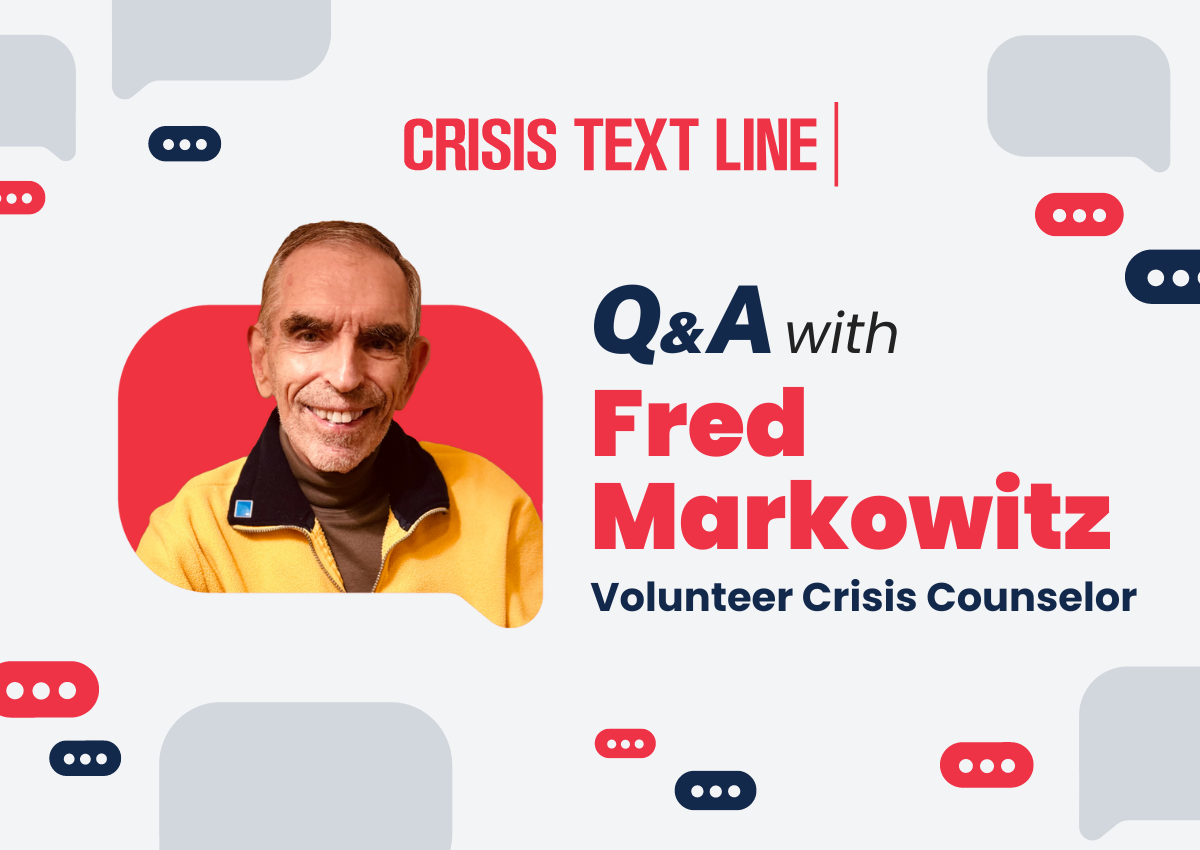Meet Fred Markowitz: Mental Health Advocate and Volunteer Crisis Counselor

Fred Markowitz has been a school counselor and mental health advocate for over 30 years. He has had the privilege of working with students, parents, teachers, and administrators in elementary schools, middle schools, high schools, and colleges. Fred is licensed as a Counselor and Guidance Supervisor in both New York and New Jersey, and is a Certified National Counselor Retired (NCC) through the National Board for Certified Counselors (NBCC).
Throughout his 30-year career, he has been dedicated to helping students succeed academically, socially, and emotionally. He has worked with students on a wide range of issues, including academic concerns, personal problems, and mental health challenges. Fred has also collaborated with parents, teachers, and administrators to develop and implement programs and interventions to support students’ mental health and well-being. After retiring from his full-time position, Fred took the volunteer counselor training program at the Faulk Center For Group Counseling, he also took a number of their educational seminars. He spent his time as a counselor there, and is a current volunteer Crisis Counselor for Crisis Text Line.
We took some time to learn more about Fred and his experiences and couldn’t be happier that he is now part of our volunteer community.
What inspired you to become involved with Crisis Text Line?
Crisis Text Line has enabled me to continue my passion for mental health support even after retirement. It’s clear that the organization’s focus on convenience, structured training, and flexible volunteer hours has been a perfect fit for my needs and desire to give back. Being a retired school counselor, I have been able to bring a wealth of experience and knowledge to the table, which can be invaluable for those in crisis. The ability to connect with someone and join them on their journey can be incredibly supportive and reassuring for them.
Crisis Text Line has allowed me to continue making a difference in people’s lives, as well as to stay involved in the field of mental health in a convenient and meaningful way. The text-based format of Crisis Text Line offers me the opportunity to volunteer on my own schedule, which is perfect for me as a retiree who has other commitments.
Why is a resource like Crisis Text Line so invaluable?
Crisis Text Line is invaluable because it provides immediate, accessible, and anonymous support to people in crisis. It helps to de-escalate situations, develop coping strategies, provide nonjudgmental support and connect individuals to additional resources. By removing barriers to help-seeking individuals, Crisis Text Line plays a crucial role in promoting mental health.
Why do you think it is important to talk about mental health at a young age?
It is imperative to talk about mental illness at a young age, as most mental illness starts early. Talking about mental health equips young people with the knowledge and confidence to reach out for help early, which can have a positive outcome and alleviate future struggles. People in general view mental health issues as something that is shameful and should be hidden. Talking openly about mental health issues at a young age makes it a subject that is more open to discussion. This makes seeking help and supporting others feel less frightening. Investing in mental health conversations early has the potential to build healthier, happier, and more resilient individuals.
My work with children and parents both individually and in groups has been focused on providing the best ways to build a healthy family foundation thereby maximizing one’s ability to live productive lives. I have devoted myself to bringing this about and it is why I am so interested in mental health issues. Families are the first social environments where children learn how to relate to others. Healthy communication, conflict resolution, and emotional expressiveness within the family act as models for future relationships.
Please discuss an initiative you implemented in schools – what did this program look like?
One of the initial programs I implemented in NYC public schools was around dropout prevention. I helped to implement an intensive counseling program for high school students at risk of dropping out. The target population for this program were students in various New York City high schools who were identified as dropout risks. The program included regular individual and group counseling sessions, vocational guidance activities, interest and aptitude testing, and follow-up educational planning sessions. We were especially pleased with the outcome wherein there was a significant reduction in dropout rates compared to a control group without intensive counseling.
This program stood out in my mind for its successful city-wide implementation, its comprehensive approach addressing both academic and personal factors, and its measurable impact in reducing dropout rates. It was used as a model for other school-based dropout prevention programs seeking to leverage counseling and support services for at-risk students.
How were some of those programs helpful to the students, and their struggles with mental health?
This unique program incorporated educational and counseling elements that were proven to enhance students’ functioning: both individual and group counseling, parent interviews and follow-up contacts, career exploration, mentor activities, small class size, counselor teacher conferences, consistent debriefing activities and more. Our regularly scheduled group and individual counseling sessions provided a safe and secure place for students to address concerns before they got out of hand, promoting emotional well-being, as well as ways to reduce stress, deal with anxiety and cope with loneliness and isolation.
A huge thank you to Fred for his work in counseling and being one of our amazing volunteers, as well as advocating for today’s youth. Are you looking to make a difference? Interested in supporting people in need? Join Fred and Crisis Text Line’s community of volunteer Crisis Counselors today!

